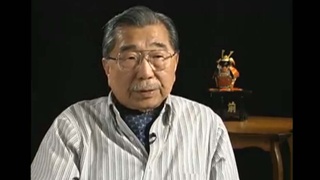Interviews
First learning about the incarceration experience in college
So I started to take some of their basic classes that introduced us to, again, issues of identity, roots, the Roots Reader, the Asian American reader had come out, exploring issues of identity and who we are and how we fit into this society. We look different, we're treated different, perhaps, when people see us, and how do we live with that and how do we break out of whatever stereotypes exist?
And aside from issues of identity, of course, issues of history. We learned about the emigration, Asian American immigration—Asian immigration to this country, learned about the treatment of Chinese, Japanese, and the various Asian, Pacific American ethnic groups. And as part of that, of course, learned about the internment of Japanese Americans. And it's the first time that I really learned about what had actually happened during the camps. After hearing references to camp just very sporadically during my youth, it was the first time that I was able to actually read about camps and see where the camps were located and what they were like and what had happened to give rise to the camps.
Date: March 23 & 24, 2000
Location: Washington, US
Interviewer: Margaret Chon, Alice Ito
Contributed by: Denshō: The Japanese American Legacy Project.
Explore More Videos



Thoughts on relationship between Japanese Peruvians and Japanese Americans at Crystal City, Texas
(1937 - 2021) Teacher

Father interrogated by FBI, but not taken away
(1925 - 2018) Nisei educator from Hawai‘i

The political effects on Nikkei during the war (Spanish)
(b. 1950) Nisei Chilean, Businessman


Government sold Japanese Canadian properties for little money
(b. 1928) Doctor. Former Chair of the Japanese Canadian Redress Foundation.

Questioning Curfew
(1918-2012) Fought the constitutionality of Executive Order 9066.



Challenges of finding a summer job
Judge, only Japanese American to serve on CWRIC.



School life in Japan (Japanese)
(1928 - 2008) Drafted into both the Japanese Imperial Army and the U.S. Army.

